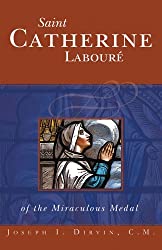
It is has often been said there are two Frances – Catholic and secular. This idea dates back to 1789, when the French Revolution brutally sought to divorce Catholic Christianity from national life.
Whilst Napoleon would (formally) reconcile his regime to France’s millions of Catholics, the relation of Church and State remained a source of terrible conflict and debate throughout the Nineteenth and much of the Twentieth Century.
In Catholic and French Forever, Joseph Byrnes recounts the battle between the French who considered Catholicism integral to their culture and those who rejected it as ‘medieval superstition’, contrary to the new secular ideology of the Enlightenment.
He does so through a series of stories from protagonists on both sides of the conflict: legislators, thinkers, priests and pilgrims whose testimony to their times is very revealing.

Yes, there is a great deal of value to be found in this well-written, learned book. I found it rich indeed.
Although dear Reader, you may wish to be advised that it is specialist, academic and – unlike most books at this site – hardly traditional.
Alas! In understanding this period of French history, the Anglophone reader faces a paucity of more traditional books and must turn to sources that are plagued by the kind of reductionism and (often Freudian) psychologism that afflict modern academia …
Still, Byrne does a great deal here to illumine the post-Revolutionary conflict between what he calls two ‘religious and national identities’ in recent French history: Catholic and Revolutionary.
There is a great deal of insight and fascinating, highly specialised information here, which is not easily found in English books.
I just want to warn the traditional readers of this site that this book is modern and orientation and carries all the hallmarks of modernity.
In truth, before reading this, I would point readers to another book France and the Cult of the Sacred Book by Raymond Jonas, which I have reviewed in-depth here. This suffers all the reductionism of the above, but is less specialised, providing a more general overview of the same themes.
Truly, Jonas’ book is a much better starting point than Byrnes – and for that reason I reviewed it at length.
By contrast, I will keep this present post ‘short and sweet’. More than review Byrnes, I simply want to note this book performs a needed service in the Anglosphere for people, who, like myself, want to penetrate the historical situation of Catholic France in recent centuries.
Buying Books at Amazon Through These Links Gives Us a Commission. This Supports Our Apostolate. Thank You if You Can Help Us Like This!




